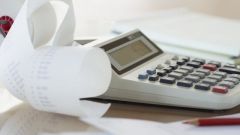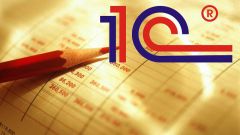Instruction
1
Familiarize yourself with the basics of accounting. Examine the objectives, basic rules and concepts used in this field, objects of accounting and their classification. You must know what assets and liabilities which operations affect their size, what is the balance sheet, accounts and double entry system.
2
Learn "chart of accounts". You need to be guided well in the synthetic and analytical accounts and subaccounts in off balance sheet accounts. Learn how to make the accounting entries, because you will need it.
3
Accounting activities regulated by the state. Examine regulatory documents: the law on accounting and regulations on accounting and accounting reporting. The accountant must know the rights of legal entities on the organization of accounting and examine the accounting policies of the company.
4
Learn how to make primary documents. First, examine their types and requirements for their completion. You need to be able to create cash and Bank documents, adhering to the requirements of their preparation.
5
Examine the procedure of opening and maintenance of settlement accounts. The accountant should know how to make a payment, cash withdrawal and other transactions on your checking account, how to make a payment order and how to use the extract from the settlement account.
6
Lead cash accountant, so you have to study the regulations on the procedure of conducting cash operations with banknotes and coins of the Bank of Russia on the territory of the Russian Federation, the procedure of preparation of cash documents, such as receipts and expenditure cash orders, know about the permissible limit in cash and be able to maintain the cash book.
7
Examine the payment procedure and payroll, because the payments to employees engaged in accounting.
You should know how to earn various benefits, vacation pay, withhold income tax individuals and other withholding, to be able to determine the amount of social insurance contributions and to correctly calculate employee severance.
You should know how to earn various benefits, vacation pay, withhold income tax individuals and other withholding, to be able to determine the amount of social insurance contributions and to correctly calculate employee severance.
8
Learn how to draft financial statements such as balance sheet, statement of profit and loss account, to maintain accounting records using a regulatory framework. In addition, the accountant prepares financial performance of the company and shall calculate the taxes payable to the budget. The accountant has a responsibility to the company for timely filing of financial statements and tax returns.
9
Watch for changes in the regulatory framework. Provisions and laws regulating the financial activity of the enterprises may vary, so the accountant it is important to be aware of the latest changes. Conduct regular monitoring of changes to the records in your enterprise was carried out correctly.








